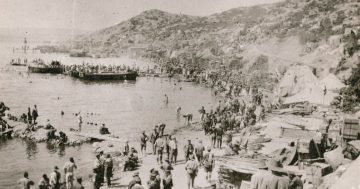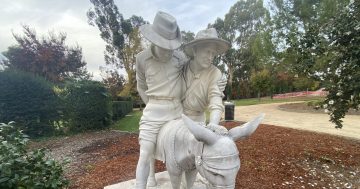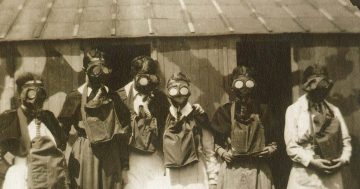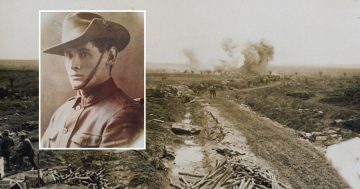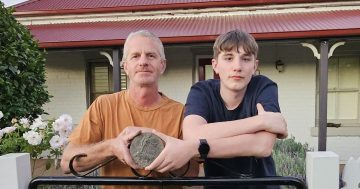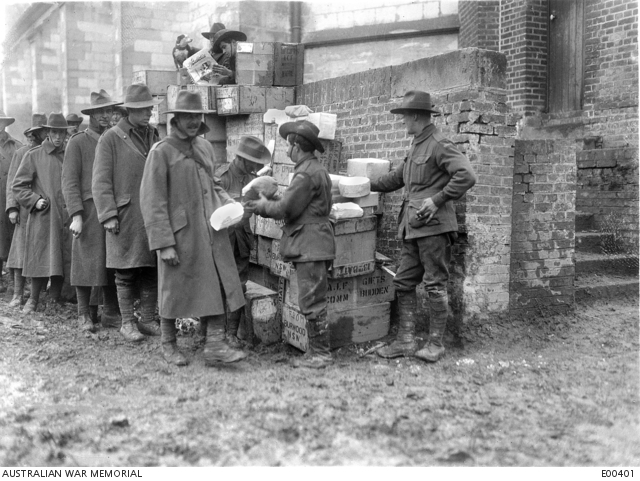
A distribution of gifts of the Australian Comforts Fund to the 13th Battalion at Ribemont. Photo: AWM.
As we reflect on Australia’s role in global conflicts and the sacrifice of our men and women in service to our country, let’s also tip our hats to the tireless knitters and fundraisers from the Australian Comforts Fund.
As the Diggers toiled in the mud and filth of the Western Front or battled the extremes of Palestine, thousands of Aussie mums, sisters, aunties, daughters and grandmothers were knitting up a storm at home.
The Wagga Soldiers Comfort Fund staged regular fundraising events and sent hundreds of parcels containing cigarettes, tinned food, fruit cakes, warm clothes, fresh shirts and socks. Lots of socks!
An estimated 1.3 million socks were sent overseas during World War 1 as local community groups gathered to knit vests, balaclavas, beanies and the official, government-sanctioned woollen socks.
The Red Cross hosted instructional events and published an official guide in 1915 called the Grey Sock Book.
So many Australian women were knitting that there was a shortage of knitting needles and bicycle spokes were repurposed for the war effort.
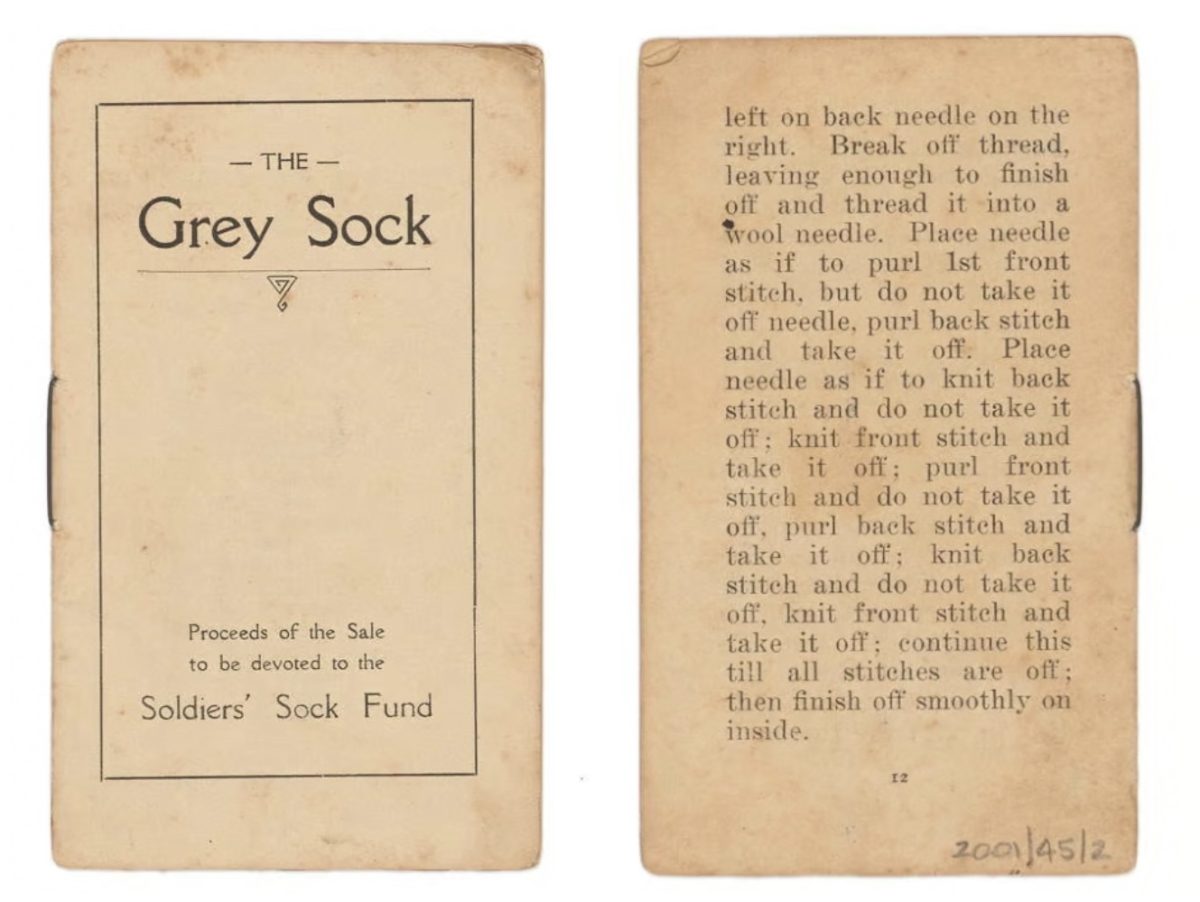
The Grey Sock Book. Photo: Powerhouse Museum.
The arrival of a parcel from the Comforts Fund was a red-letter-day for the troops and shone a small ray of light into the darkness of the battlefield.
The women at home would include small notes with the socks and gifts and many Diggers were moved to write back to the Comfort Fund.
In January 1918, Wagga’s Daily Advertiser published a collection of notes “expressing appreciation of the excellent work of that untiring body”.
Pte Rath wrote from Belgium that “the articles in the parcel were just the things required, especially the shirt. I have not been able to do any washing for several days and feel quite fresh after changing into my new shirt and socks”.
CSM Wells in France declared “It is great for we boys over here to be able to think that our womenfolk and girls are doing so much for our welfare. And for a parcel to arrive just when mine did could not be appreciated more,” he wrote.
“We had just come out of the line that night after the Menin Road fight and being tired and weary it made me feel quite happy again.”
Pte Rath had also just returned from the trenches in Belgium when he found a parcel from Wagga waiting for him.
“I had the luck to have a bath that day also, so I can assure you I felt quite a different fellow when I had got rid of my trench clothes and was wearing the shirt and socks which were in the parcel,” he said.
“When I had myself well fixed up again I was able to sit and have a good old smoke of Australian tobacco, which my mates and myself enjoyed immensely”.
Lest We Forget.







